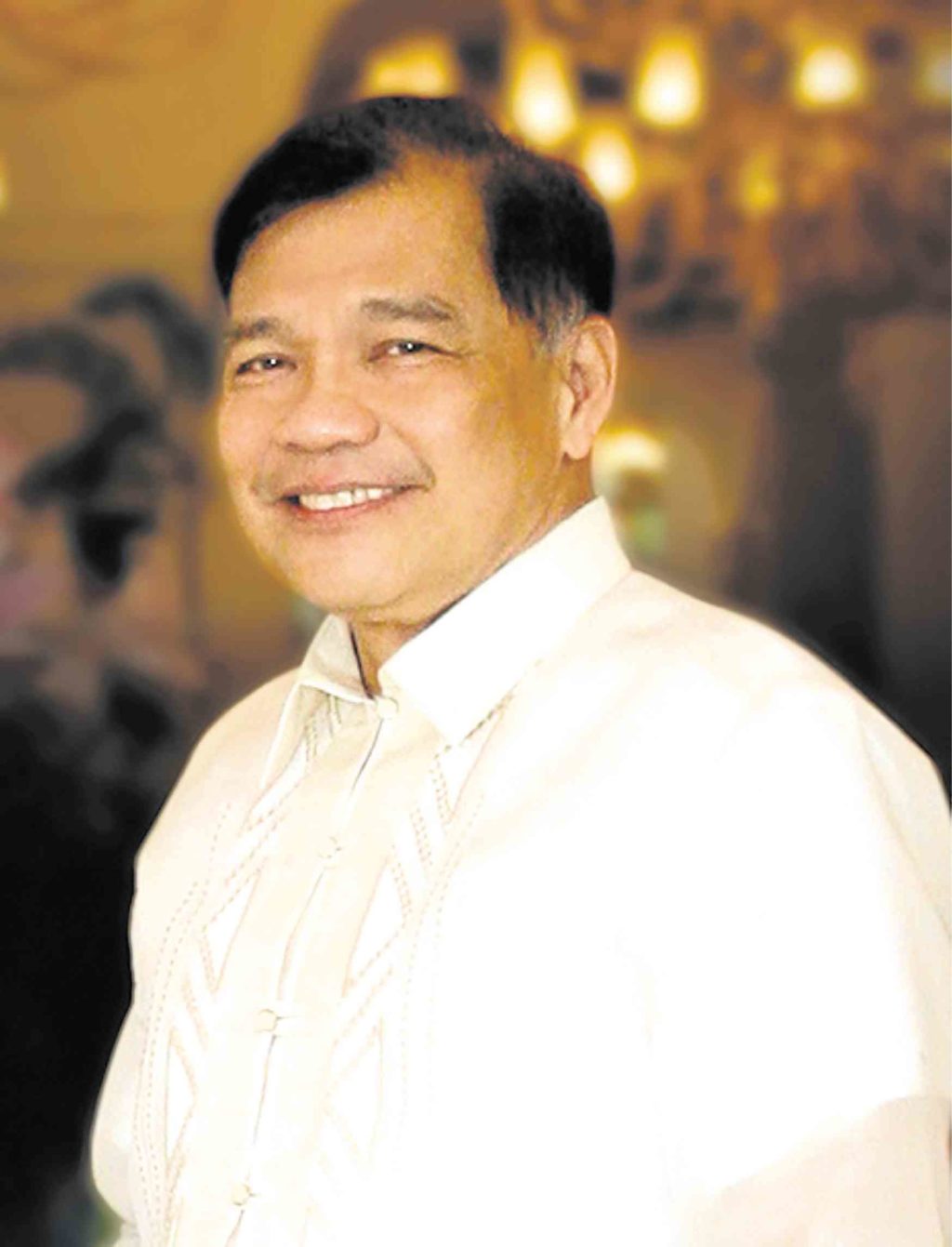Lawyer Jose “Joey” Lina Jr. made a pivot from politician to hotelier without much difficulty.
“Both careers are about improving service quality. It has become second nature to us,” says Lina.
In his last post as Interior and Local Government Secretary during President Gloria Arroyo’s time, he dealt with illegal gamblers, drug lords, kidnappers and supervised local governments around the country. When he was Laguna governor during President Fidel Ramos’ term, he managed development programs and mayors so that they did their jobs according to law. As the youngest senator in President Corazon Aquino’s era, he filed 338 bills.
At Manila Hotel where he is president, Lina is referred to as “Attorney.” His job is similar to a general manager: overseeing every function of the hotel from engineering, renovations, food tasting, booking and guests’ complaints.
Asked for his biggest learning experience as an hotelier, Lina isn’t joking when he says, “You have to be charming and patient all the time.” He has to balance several jobs to keep the hotel running smoothly while maintaining poise.
Lina says he left politics after 22 years in 2004. He was one of the casualties of an education plan scam. To support his children, he planned to return to law and consultancy.
One day, Manila Hotel chair Emilio Yap urged him to accept the post of hotel president. The late tycoon explained that with his leadership experience, Lina could manage the property. Lina accepted the proposition to test himself in a corporate atmosphere.
Manila Hotel’s staff numbers 450, which doubles in size when they hire extra hands for special events. Still, a thousand is small compared to the 1,500 Lina handled under the the DILG or 3,000 under the Laguna provincial government.
His first challenge was to bring more people to a hotel which badly needed a facelift. Known for his diplomacy, Lina gently persuaded the board to renovate the hotel, which was nearing its 100th anniversary in 2012.
He also called up friends from the Rotary, Jaycees and other organizations to hold their events in Manila Hotel. The running joke was that his friends wouldn’t book unless Lina sang. If the speaker failed to show up, Lina was the last-minute fix.
“I took the job with gusto. Wherever I am assigned, I have this natural tendency to have the passion to do what needs to be done,” he says.
Lina credits this smooth adjustment to his experience in handling organizations. He says in jest that despite not taking up postgraduate studies, his experience is enough to cover a doctorate in mob psychology.
“There’s a crowd and people to manage. God has given this gift of how to coordinate,” he says.
As hands-on boss, he arrives at the Manila Hotel before 7:30 a.m. to inspect the property and talk to his managers. “I see what is amiss so I can give specific instructions.”
He still leads the operations meeting, but the nitty-gritty details are delegated to the resident manager.
So far, business has been brisk. Manila Hotel grew its revenues by 25 percent in 2016.
Lina attributes the surge to the renovations as well as the training program upgrade. The kitchens and outlets have been expanded to accommodate more guests and functions. The rooms have been elegantly refurbished after getting the flak for looking dowdy.
The hotel’s unique selling point is its 105-year-old history, thus its building is considered a heritage site. The Champagne Room is usually booked three times a week for marriage proposals.
Meeting VIPs
Manila Hotel has touched the hearts of guests and dignitaries with its hospitality and pageantry. During the recent Asean Summit, the entire staff lined up at the lobby to greet Korean president Moon Jae-in and First Lady Kim Jung Sook. The staff even sang happy birthday to the Korean First Lady. Myanmar State Counselor and Nobel Prize winner Aung San Suu Kyi was also given the welcome and departure honors.
A people person, Lina underscores the importance of interpersonal skills. “We train our staff on how to speak better English, how to carry themselves, what are the proper spiels, how do you handle complaints, how do you greet your guests—every aspect is now being looked into to improve the service quality,” says Lina. The staff is trained to be more spontaneous when engaging with guests rather than just mechanically delivering a standard line.
Lina also has the ability to look at the big picture.
Recently, he checked the data on room bookings. Instinctively, he felt the numbers didn’t match. “I asked the room sales, the reservation, and the front office. After the operations meeting, they looked at the figures more closely. There was an overbooking, but that’s a good problem. So we had to handle it,” he says.
Manila Hotel’s market consists of 60 percent locals and 40 percent foreign. Among its foreign clients are the airlines.
To capitalize on the domestic market, the hotel is packaging itself as a family destination, the go-to staycation place. The hotel organizes activities for children, such as workshops on making cupcakes. Plans are afoot to package a golf holiday for dads and special activities for moms.
Despite the traffic, clients from Malolos, Bulacan to Fairview to Las Piñas are drawn to Café Ilang-Ilang’s much-talked about buffet and the new Red Jade with its classic Chinese cuisine.
Lina adds the hotel is an ideal conference venue because it is away from distractions such as malls and casinos. The hotel also sees the need to build a multistory parking building and more sports facilities.
When ambassadors meet Lina, they are amazed to learn about his political background. They would tell him that they would like to retire in such a place like the hotel.
“There is never a dull moment. It looks glamorous and easy—but no,” says Lina. Yet, “one difference between the Manila Hotel staff from the rest is that we can still afford to laugh,” he says.—CONTRIBUTED


